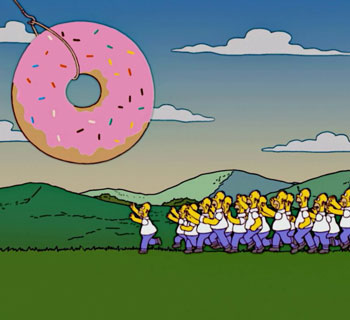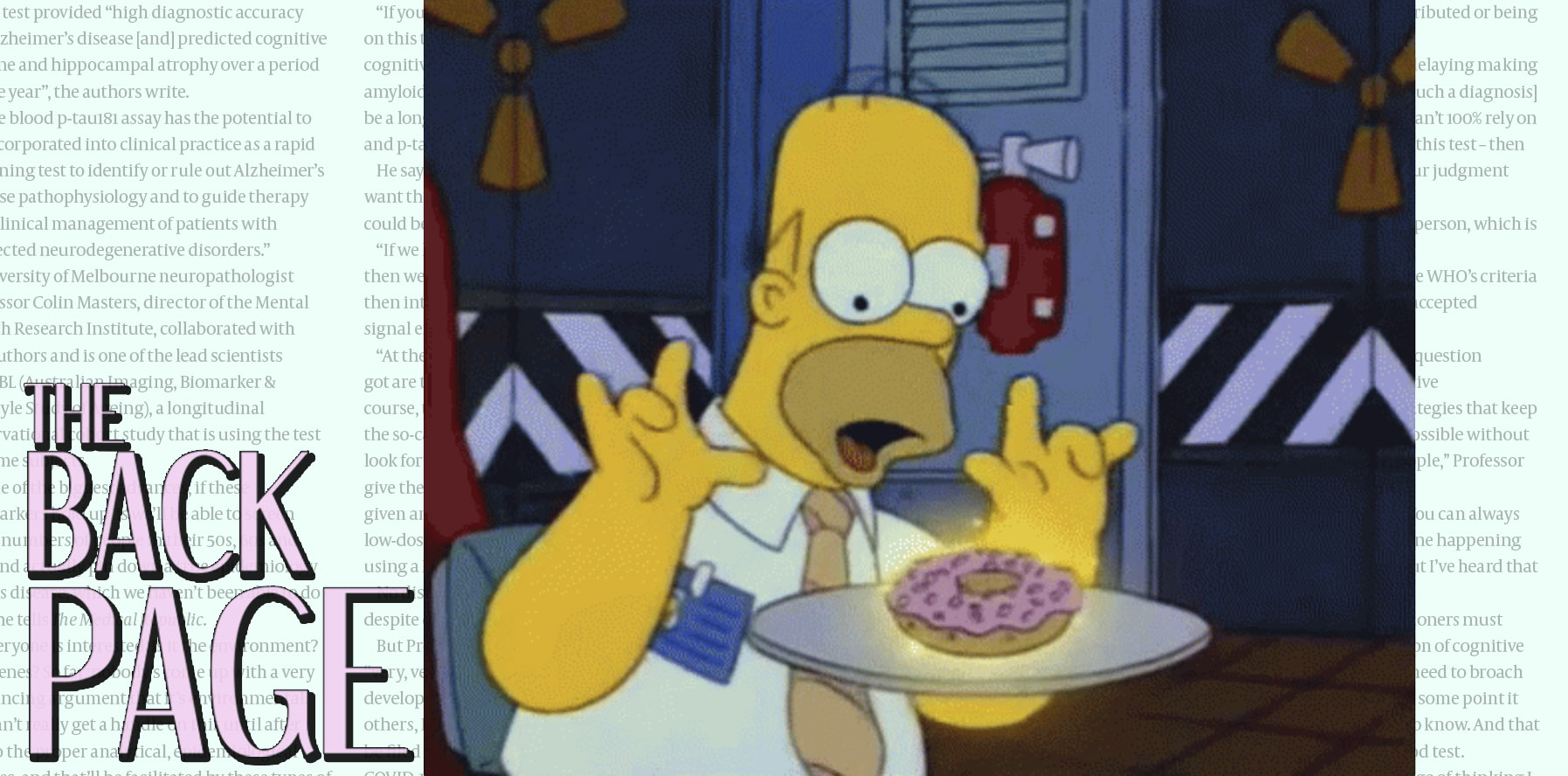We have a homing instinct for junk food. They put some humans in a food maze to prove it.
Place a human in a food maze and they will recall the location of the brownie – no problem, but the location of the salad will slip their mind…
Have you ever wondered why you leave your ever-so-healthy lunch in the work fridge forgotten, but you have no trouble remembering exactly how many pieces of chocolate are left in your cupboard at home?
A cute little observational study by researchers at Wageningen University in The Netherlands has demonstrated that humans are much better at remembering the location of high-energy – yummy – foods than boring foods like carrots. (Yes, I know at least one reader will be a carrot lover. Feel free to write vegetable love poetry below.)
In the study, around 500 people were placed in a “food maze” containing the odours of different types of food, ranging from high-calorie foods like a chocolate brownie or potato chips to low-calorie foods like apples and cherry tomatoes.
In a second variation on this, the participants were placed in a “multisensory environment” where they could taste, see and smell the actual food products.
The study participants didn’t know they were going to be tested on the locations of the different food types until they exited the food maze.
The results, published in Scientific Reports on 8 October, would have made Homer Simpson and Joey Tribbiani proud.


Participants were 28% more accurate in mapping the location of high-calorie foods compared with low-calorie foods.
“We found that individuals incidentally learned and more accurately recalled locations of high-calorie foods – regardless of explicit hedonic valuations or personal familiarity with foods,” the authors said.
The food mapping became 243% more accurate when participants were presented with food samples rather than food-scented cotton pads.
The authors said the study supported their theory that human senses have evolved such that information about high-energy food tends to be retained.
“These results are compatible with the notion of ‘adaptive memory’, which contends that memory systems – much like other biological systems – were shaped by the forces of natural selection and should therefore show sensitivity to fitness-relevant content,” the authors said.
If you see something stupid, say something stupid… To locate your nearest sugar hit, email felicity@medicalrepublic.com.au


